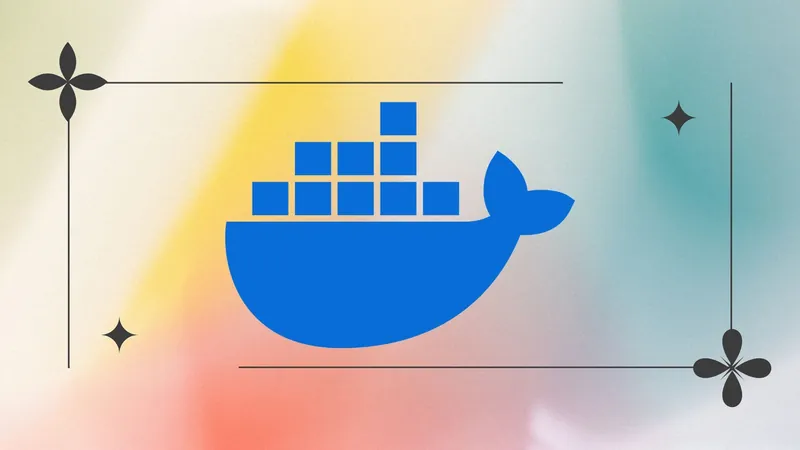
Anthropic Unveils Groundbreaking Model Context Protocol to Revolutionize LLM App Integration
2024-12-24
Author: Noah
Introduction
In a significant advancement for AI application development, Anthropic has unveiled their Model Context Protocol (MCP), a pioneering open standard designed to facilitate the seamless integration of external resources and tools with large language model (LLM) applications. This announcement includes the release of software development kits (SDKs) for immediate implementation, along with an open-source repository featuring reference implementations of the MCP.
Solving the MxN Problem
The MCP directly addresses the challenges of the "MxN" problem, where M different language models must correspond with N distinct tools. By establishing a unified protocol, Anthropic aims to simplify this complex integration process for both LLM vendors and tool developers. The MCP operates on a client-server architecture; applications such as Claude for Desktop or integrated development environments (IDEs) use an MCP client to establish connections with MCP servers that access data sources and tools.
SDKs and Community Contribution
For those eager to dive into the MCP ecosystem, Anthropic offers SDKs in both Python and TypeScript, alongside an expanding catalog of community-contributed servers and reference implementations. The company emphasizes their commitment to fostering a collaborative, open-source project and encourages feedback from all stakeholders, whether they are AI tool creators, enterprises leveraging data, or early adopters of innovative technologies.
Protocol Specifications
The MCP specification delineates a set of JSON-RPC messages that facilitate communication between Clients and Servers. These messages involve core building blocks referred to as "primitives." The server-side primitives encompass three categories: Prompts, Resources, and Tools, while client-side primitives include Roots and Sampling.
Understanding Primitives
- **Prompts** serve as templates or directives for language models. - **Resources** encapsulate structured data that can enhance LLM prompts. - **Tools** are executable functions that LLMs can utilize to gather information or execute tasks.
Meanwhile, **Roots** provide an entry point for file systems, granting servers access to files on the client side. **Sampling** enables servers to request "completions" or "generations" from client-side LLMs. Anthropic underscores the importance of maintaining human oversight, advising that a human must always be involved in approving sampling requests.
Practical Examples
To illustrate the MCP capabilities, Anthropic has included a variety of examples and tutorials in their documentation. A prime example showcases how developers can use a Claude LLM to access real-time weather forecasts and warnings. In this scenario, a developer creates a Python-based MCP server that utilizes a Tool primitive, which wraps calls to a public web service providing weather data. The developer can then interact with the MCP server through the Claude for Desktop app, which incorporates an MCP client to fetch weather information.
Developer Insights
In response to community discussions surrounding the MCP's potential to tackle the "MxN" challenge, Anthropic developer Justin Spahr-Summers expressed optimism about the protocol's effectiveness. He noted, “We definitely hope [it] will,” emphasizing the utility of distinct concepts of prompts and resources to convey diverse intentions for server functionality.
Conclusion
As AI technology continues to evolve, the Model Context Protocol could be a game-changer, paving the way for more efficient and context-aware AI applications. With growing interest in LLMs and their applications across various sectors, it’s clear that the MCP holds immense potential to empower developers and transform the landscape of AI integration.
Call to Action
Stay tuned, as this development has the potential to redefine how AI interacts with our world! How do you think the MCP will change the way you use AI? Let us know your thoughts!









 Brasil (PT)
Brasil (PT)
 Canada (EN)
Canada (EN)
 Chile (ES)
Chile (ES)
 España (ES)
España (ES)
 France (FR)
France (FR)
 Hong Kong (EN)
Hong Kong (EN)
 Italia (IT)
Italia (IT)
 日本 (JA)
日本 (JA)
 Magyarország (HU)
Magyarország (HU)
 Norge (NO)
Norge (NO)
 Polska (PL)
Polska (PL)
 Schweiz (DE)
Schweiz (DE)
 Singapore (EN)
Singapore (EN)
 Sverige (SV)
Sverige (SV)
 Suomi (FI)
Suomi (FI)
 Türkiye (TR)
Türkiye (TR)